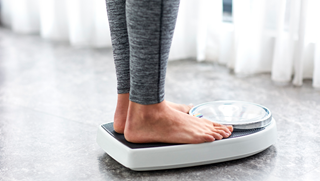How to Better Control Blood Pressure
Doctors often refer to high blood pressure as being a silent killer, because for most of us there are few symptoms. It’s not until a routine doctor’s visit or a related illness occurs that many of us find out we have it. High blood pressure affects 75 million Americans, or one in three adults. It is important to understand how to better manage this potentially life-threatening condition.
What Is High Blood Pressure?
High blood pressure, also called hypertension, occurs when the force of the blood going through your blood vessels is consistently too high. Your blood pressure normally rises and falls during the day, and may be higher after an emotional event, but if it is consistently higher than normal, your doctor may diagnose you with high blood pressure.
High blood pressure is dangerous because it makes your heart work harder to pump blood through the body. That additional work can also damage the heart, arteries and ventricles, leading to additional health risks.
What Are Risk Factors for High Blood Pressure?
A variety of conditions can contribute to high blood pressure, including:
- Age — The chance of developing high blood pressure increases with age.
- Race — High blood pressure is more common among African American people.
- Family history — High blood pressure tends to run in families.
- Weight — Being overweight can increase the pressure on the artery walls.
- Inactivity — Inactive people may have higher heart rates, which require the heart to work harder.
- Use of tobacco — The chemicals in tobacco act as a stimulant and increase blood pressure. Those chemicals also can damage the lining in the walls of the arteries.
- Salt — Too much sodium can make you retain fluid, increasing blood pressure.
What Happens If Blood Pressure Is Not Controlled?
High blood pressure can damage the ventricles, leading to heart failure. It also can damage the inner lining of the arteries, leading toatherosclerosis(hardening of the arteries). High blood pressure can lead to additional complications such as chronic kidney disease, heart attack, stroke and vascular dementia.
What Can Be Done to Control Blood Pressure?
The first step is to know if you have high blood pressure. A high blood pressure test is usually a routine test done at the doctor’s office as part of an annual exam. But if you have concerns, you can schedule an appointment to have it checked. Many pharmacies also have equipment that enables you to check your blood pressure. If you notice that it is high, you should confirm with your doctor.
Fortunately, a number of steps can be taken to help normalize your blood pressure.
 Eat healthy. Low-fat diets that focus on vegetables, fruits, lean meats, nuts and beans are recommended for most people, but particularly for those who want to lower their blood pressure. The DASH diet provides helpful guidelines. Additional studies suggest certain foods may specifically help lower high blood pressure: low-fat dairy, flax seed, dark chocolate, olive oil, beets, pistachios, pomegranate, fatty fish, whole grains, hibiscus (as in tea).
Eat healthy. Low-fat diets that focus on vegetables, fruits, lean meats, nuts and beans are recommended for most people, but particularly for those who want to lower their blood pressure. The DASH diet provides helpful guidelines. Additional studies suggest certain foods may specifically help lower high blood pressure: low-fat dairy, flax seed, dark chocolate, olive oil, beets, pistachios, pomegranate, fatty fish, whole grains, hibiscus (as in tea).- Be active. Physical activity helps lower blood pressure, reduces stress and helps with weight loss.
- Maintain a healthy weight. Even the loss of 10 pounds can help lower high blood pressure.
- Stop smoking. Talk with your doctor about how to reduce your risk for heart disease and other illnesses by quitting smoking.
- Reduce alcohol. Heavy drinking is associated with high blood pressure.
- Minimize stress. Daily stress can accumulate and contribute to high blood pressure. Exercise, meditation and other relaxation techniques can help reduce the amount of stress you feel.
- Take your medications and see your doctor regularly. If you’ve been diagnosed with high blood pressure, it is important to take your medicines as directed to ensure they are effective.
Be sure to see your doctor regularly to discuss your progress and any concerns or changes in your health. High blood pressure may be “silent,” but by working closely with your doctor and managing your health, you can make sure the effects of this disease don’t sneak up on you.
Heart Disease Prevention Guide
We know that managing your heart health can be a daunting task. That’s why we’ve created a guide for patients to serve as a resource.






